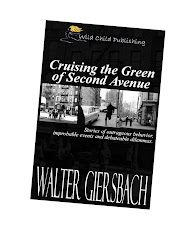I always had a creepy feeling about being a
tourist—buying a vacation, standing like a stranger in a new city, acting gawky
and “untanned.” Perhaps it’s because I always
scorned the clots of people standing at Fifth Ave. and 50th Street,
holding maps and looking up at New York’s Rockefeller Center as though God were
going to direct them like a Gray Lines tour guide.
Rushing uptown or down on some mission of capital intensity,
I’d have to stop and go around them. I
was in coat and tie while they had blousy sports shirts and khaki shorts.
I also remembered, self-consciously, walking through
Edgartown on Martha’s Vineyard when I was a college kid. Some obvious vacationers looked at me with
the same scorn and muttered, “Tourist!”
For God’s sake, I waited tables there the entire summer!
For these reasons, I prepped that year before landing at the
Honolulu Airport. I signed up for e-mail
offers, I browsed the Web sites, I was inundated with brochures. But then, one particular incident made this
first-time visit to Oahu memorable.
My mother had spent three decades
researching a history of the Oregon Territory, tracking the missionaries who
came West to save the “benighted heathen.”
One pilgrim and his wife stood out in my memory as I worked recently to
have her manuscript published.
I remembered that George Henry
Atkinson passed around Cape Horn in 1847 and up through the Sandwich Islands –
a.k.a Hawaii – on his way to Oregon’s Tualatin Valley. Atkinson was a representative of the
Congregational Home Missionary Society.
But he and his wife, Nancy Bates, missed the boat—literally—to
Oregon. My presumption was that he spent
those three months waiting for passage at the Mission Houses in Honolulu.
I love a mystery – a clever cover
for my discomfort at being a tourist – so I invited my wife to come with me to visit
the Mission Houses Museum across the street from Honolulu’s Princess Iolani
Palace (which, incidentally, is the only palace in United States). What connection could I uncover by visiting
the place where Atkinson presumably twiddled his thumbs for three months until
the next ship came by?
The cluster of houses and church
were cool and quiet in the morning hours.
Walking through the rooms brought me back to Connecticut and Vermont
homes, where Atkinson and the other Congregationalists had hailed from.
After the tour, I buttonholed the
guide and put my question to her: Did she think there were any records of the
Atkinsons’ visit?
Fifteen minutes later,
I was introduced to Judith Kearney, librarian at the MHML. After telling her my story of this wanderer
who ended up a trustee of Pacific University, successor to the Indian orphans’
school, we went through her catalogue of correspondence.
She immediately confirmed that my
presumption was true. Atkinson may not
have left any significant impact during his short, unplanned “vacation,” but
she reported their archives contained three letters written back from
“Portland” to Honolulu circa 1859.
Case closed! My wife and I then had a wonderful time
wandering the city where an international festival and parade was taking place,
circumnavigating the island and learning sadly that 2007 was the last year
pineapples would be grown commercially, sharing sadness at the Pearl Harbor
Memorial, drinking fruity concoctions at the Sheraton Moana on Waikiki and
watching the sun set. What a wonderful
place, and our friends insist it’s nothing compared to Maui, Kauai and the
other islands
Final closure to the detective
story, however, came a week later. In
Taiwan, our next stop, I borrowed a friend’s PC and sent an e-mail to Pacific
University’s archivist. “Alex,” I wrote,
“the Mission Houses Museum and Library has letters that were written 150 years
ago from your very own George Atkinson.
Get in touch with Judith Kearney there.”
Perhaps I don’t hate being a
tourist as much as I let on, but the adventures are so much richer when you
have an ulterior purpose for vacationing.
There simply must be some quest satisfied or insight gained in order for
a vacation grow beyond the level of a Kodak moment.
Before leaving this episode,
however, I’d be remiss if I didn’t pass on this advice to future tourists: Back
then, cigarettes were $5.50 a pack at the ubiquitous ABC convenience stores,
but only $2.50 at the Duty Free Shop. Conversely,
the wise vacationer will note that Duty Free sells only high-priced booze and
the good prices are on Kalakaua Street!



No comments:
Post a Comment